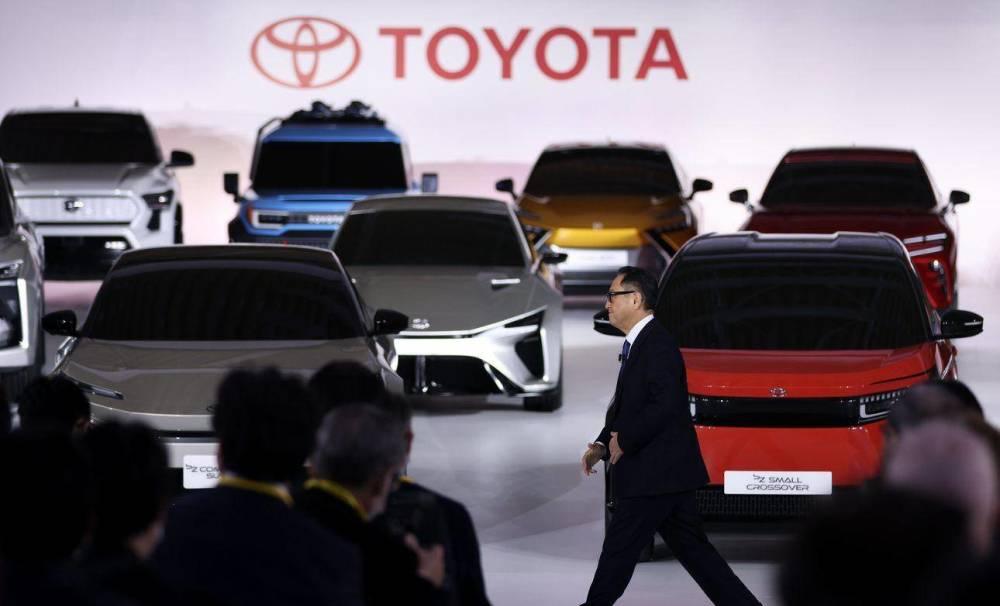Toyota Motor Corporation recently announced that net profit fell for the fiscal quarter ending December 2021, while the company plans to produce 700,000 vehicles worldwide in February, up from 660,000 units in the same period last year, but lower than Toyota's previous plan of 900,000 units, all indications that Toyota is likely to drag down sales performance due to chip shortages.
Toyota Motor Motor said net profit for the fiscal third quarter fell 5.6 percent from the year-ago quarter to 791.74 billion yen ($6.85 billion). Against the backdrop of chip shortages dragging down production, Toyota Motor's revenue in the third fiscal quarter decreased by 4.5% year-on-year to 7.786 trillion yen. Toyota lowered its revenue forecast for the fiscal year ended March, but left its net profit forecast unchanged. Toyota currently expects revenue to grow 8.4 percent to 29.5 trillion yen, while previous forecasts were 10 percent, and the company still expects net profit to grow 11 percent to 2.49 trillion yen.

At the end of 2021, at the electric vehicle strategy conference held by Toyota Motor Corporation, Toyota CEO Akio Toyoda announced that by 2030 Toyota will launch 30 pure electric vehicles, and will invest a total of 8 trillion yen (about 447.8 billion yuan) by 2030 to develop full-product electric vehicles, including technology research and development, equipment investment, etc.
This large investment means that Akio Toyoda's previous cautious attitude toward electric vehicles has undergone a major change, and it also shows that Toyota Motor Company is increasingly focusing on the all-electric vehicle business, but to a lesser extent than Volkswagen or General Motors. Toyota has a more reasonable reason to exercise restraint than in other ways.
Toyota's latest goal is to sell 3.5 million electric vehicles (BEVs) by 2030, up from the previous forecast of 2 million. The company expects its luxury car brand Lexus to be fully electrified in China, North America and Europe by 2030. After the launch of Toyota's flagship model, the bZ4X, in the United States next year, Toyota will also launch a series of new all-electric vehicle models.
Still, the company's message is more nuanced than many of its peers. Its big bet is not on pure electric vehicles, but on diversification. Toyota President Akio Toyoda previously said at a press conference: "If we provide the right solution for ordinary people, we can't provide the right solution for everyone." ”
Toyota is still investing heavily in hybrid systems, including technology pioneered on Prius models in the 1990s. The company has earmarked a capital expenditure of 4 trillion yen (about $35 billion) to develop Prius hybrids, plug-in hybrids and fuel cell electric vehicles by 2030. That's on par with the 4 trillion yen the company will invest in pure electric vehicles, including another 500 billion yen for battery investments.
Most of the reasons Toyota is spreading its bets sound justified. As a large multinational company rooted in a culture of cost efficiency through "continuous improvement," Toyota meets consumer demand in a broader revenue range than its peers. In the six months to the end of September, Toyota's sales revenue per vehicle was about $33,000, compared with nearly $50,000 for GM in the most recent quarter. Compared to most large automakers, Toyota doesn't have as much room to maneuver to make plans based on developments in the European and American markets.
Electric vehicles require a widely distributed charging infrastructure to encourage consumers to buy and use them, and in order to deliver on their environmental commitments, they also need a grid powered by a growing number of renewable energy sources. In order for the average consumer to be affordable, these cars must be cheaper, perhaps in the form of subsidies. However, the satisfaction of these conditions depends on the government's policy. Akio Toyoda and his deputy say Toyota is accelerating its investment in electric vehicles to cater to new commitments made by governments around the world on the energy transition.
Toyota's new goal is to sell 3.5 million electric vehicles by 2030, equivalent to about a third of current sales. Volkswagen, which is closest to Toyota, said last July that it expected half of its car sales to be pure electric by 2030. The difference in the two companies' targets has a lot to do with the different geographical markets they each occupy: Volkswagen has a large share in Europe and the Chinese market, which is driving more pure electric vehicle sales than the US and Japanese markets, while Toyota has a larger share in the US and Japanese markets.
When it comes to hydrogen fuel, Toyota's insistence on keeping technology options open is even more difficult to understand. Toyota has long supported hydrogen fuel cell electric vehicles, and Akio Toyoda has recently begun advocating for the use of this clean fuel in traditional internal combustion engines. While the possibility of a comeback in the passenger car industry cannot be ruled out, the momentum of pure electric vehicles is so strong that Toyota's large investment in hydrogen fuel cell electric vehicles seems likely to be adrift. The Japanese giant is right to plan a slow transition to pure electric vehicles. But preparing for a different technical end may go too far in diversification. Regardless of the final outcome of Toyota's bet, from the various indications at the beginning of 2022, Toyota's new year needs to be more "hard".